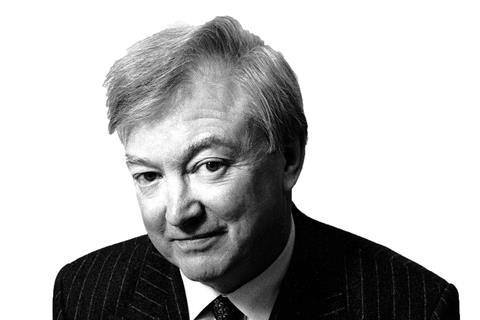Day-long mediation can simply be too stressful an environment to produce a good result. But what’s to be done?
A passing remark by the judge in this case points to reality and why the mediation went to pot. He mentioned that the parties reached a so-called agreement “after a mediation lasting about nine hours”. That point might explain why, a few days after signing the agreement, one party got the collywobbles and wanted to back out. Let me say, for the umpteenth time: mediation doesn’t work properly when it drags on interminably – and nine hours is just that.

Go further: the idea of dragging out the mediation hour after hour is, to some folk (especially old hands), a mean but effective sword in the armoury. Wear the other side out! Don’t take a break. Don’t stop for food, nor to sit on the loo. Tiredness drives folk to cave in. I do so wish that the party who wanted to back out had told the judge that he was simply worn down by fatigue. By then he hadn’t got his head on.
The dispute – Mr Rajinder Aujla vs Mr Narvinder Aujla – was about property ownership. The two brothers argued over who owned what. Mediating is much like coaxing someone to believe buying an electric car is sensible. (Or indeed like then prime minister Gordon Brown trying to coax us to believe buying a diesel car was sensible.
Mediation works sometimes, but this one fell over. The arguing pair got in touch with the Centre for Effective Dispute Resolution (CEDR), and along came a mediator on the day set. That’s when the nine-hour “negotiations”, “nudging”, “tantrums” and “tears” took place. Lawyers attended with the two arguing brothers. At the end of the day, the brothers entered into a written compromise. Brother C agreed to pay Brother D £117,500 as part of the overall deal. It wasn’t paid.
How about 45 minutes, then bring on a tray of oranges and go for another 45 minutes? Then if still no settlement, a penalty shoot-out
Those collywobbles I mentioned saw Brother C allege that his signing took place “under duress”. I strongly suspect that he simply meant he was worn out, fed up, and wanted to go home. After nine hours he “felt pressured that an agreement should be reached on the day”. So true: I have seen all that happen in mediation. Anyone holding out is labelled as a nasty piece of work, a trouble-maker … a pain in the behind.
Days later, Brother C embarked upon another very ordinary piece of human behaviour: he blamed the mediator. That piece of mental agility is just like Blackburn Rovers’ fans lambasting the referee when their team loses five nil to Real Madrid. Yes, it’s the ref’s fault.
Brother D, kept from his awarded £117,500, eventually sued to enforce the compromise agreement. So the brothers faced each other, and spent yet more cash on the same dispute, but this time in court, with solicitors and barristers on both sides. The court had power to vary or revoke the compromise agreement, but only on narrow grounds. “Undue influence” is a good ground, if proven. Brother C picked on the mediator. He said the fellow was biased and threatening and overbore Brother C’s will; he even shut out Brother C’s legal advisers. Add all that up in the shopping trolley, and at checkout the till will ambitiously ring up duress (hurrah) and undue influence (more hurrah, hurrah).
>>Also read: Risk and responsibility: unpicking the first post-Grenfell court decisions
>>Also read: Expect an uptick in disputes this year as economy worsens
Brother C’s criticisms met a problem, however. Attending the mediation on the day was his barrister. She gave evidence to the judge in the enforcement and said not a jot about bias of the mediator. But she did say that the mediator “raised his voice”. Brother C complained that the mediator did not give him or his barrister the opportunity to make a meaningful opening statement and, worse, did not listen. But the barrister’s written evidence said, “I set out the claimant’s case to the mediator,” and added that “there was some discussion”. In short Brother C’s allegations didn’t match his barrister’s evidence. Nor was there any suggestion that the mediator did not listen or was ill prepared.
Another “ouch” for Brother C was that this allegedly delinquent mediator “compelled me to make offers I did not wish to make”. Apparently, the mediator warned about the very substantial costs of a failed mediation and going off to court instead. Warned too that certain correspondence to the tax people didn’t look good. The judge took all this to be only warnings about the risks in proceeding to trial.
As to the mediator raising his voice, I dare say that he too got a tad fatigued by all the hours of back and forth. I identify with that position. As mediator, I once irritably told a party that his case was “bloody awful” – only to hear his colleagues rejoice with: “We have been telling him that for months on end!”
The bullets aimed at the mediator were a non‑starter. And all the rest of Brother C’s case to avoid enforcement failed. But, in my humble opinion, it is a mortal sin to spend a nine-hour stretch in a stressful environment, which mediation is. Perhaps CEDR can have a think about that downside of mediation. How about 45 minutes, then bring on a tray of oranges and go for another 45 minutes? Then, if still no settlement, a penalty shoot-out – whereupon the mediator announces a verdict. They think it’s all over … it would be by then.
Tony Bingham is a barrister and arbitrator at 3 Paper Buildings, Temple


























No comments yet